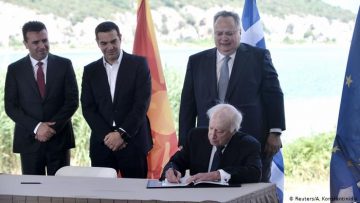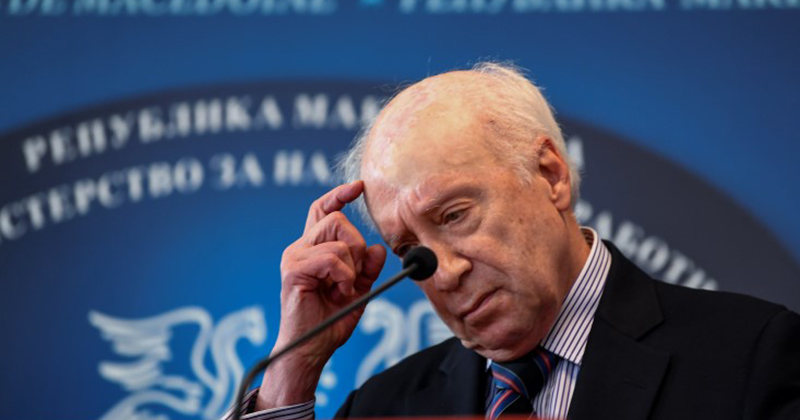In a lengthy interview with Deutsche Welle, long time UN mediator in the Macedonian name issue Matthew Nimetz reveals that the reason for Greek obsession with Macedonia is the ethnically diverse composition of the part of Macedonia Greece occupied a century ago. Nimetz acknowledges that Greece got all it wanted from Macedonia in the dispute, but insists that Macedonians have to right to call themselves what they like – although he uses “Slavs” in the interview.
What many in the West didn’t understand about the Greek position is that Northern Greece was included in modern Greece much later, after the Balkan wars. That part of Greece had a very mixed population, with Slavs, Turks, Vlachs, Albanians and Jews. During the Civil War in Greece, a good portion of the Communist army, as we in the US called it, was comprised of Slavic population and they received help from Tito. Therefore, for Greece, the northern threat was not a made up term, but constituted actual danger that could flare up again with the appearance of the Republic of Macedonia, Nimetz told Deutsche Welle.
He lists the many concession Greece obtained with the Prespa treaty. “It was a good solution for them, they got all they asked for in the past years. The name is used ‘erga omnes’, the historic issues are acknowledged, there are clear concessions in anti-irredentism. I think this is a major success for Greece in many regards, but some in Greece are trying to turn this diplomatic and strategic win into a psychological defeat”.

The treaty names the Macedonian nationality as “Macedonian/citizen of the Republic of North Macedonia” – a formula which Zoran Zaev claims refers to nationality and the Macedonian ethnic group, while Greeks say merely declares the citizenship regardless of nationality. Nimetz was asked about the growing cases where, given this grey area, foreign media and commentators are adopting the term “Northmacedonian” instead of “Macedonian”. He says that the problem was foreseen, but that the treaty allows Macedonians to declare themselves as Macedonian. Listing the example of North and South Korea, Nimetz insists that the people of these two countries can call themselves just “Korean”, although most of the world adds the geographic adjective to their names. Pressed on this issue, Nimetz says he is sorry the treaty was not signed in Chinese, and left ineligible for the citizens of both countries.
Asked when was the issue closest to being resolved, he laments the death of Boris Trajkovski who, he believes, would have resolved it. The 2008 NATO Summit in Bucharest was a missed opportunity which was undermined by the high levels of anger and the lack of support from the US. Nikola Gruevski, Nimetz says, was not willing to make the last step and sign away the name.





Comments are closed for this post.